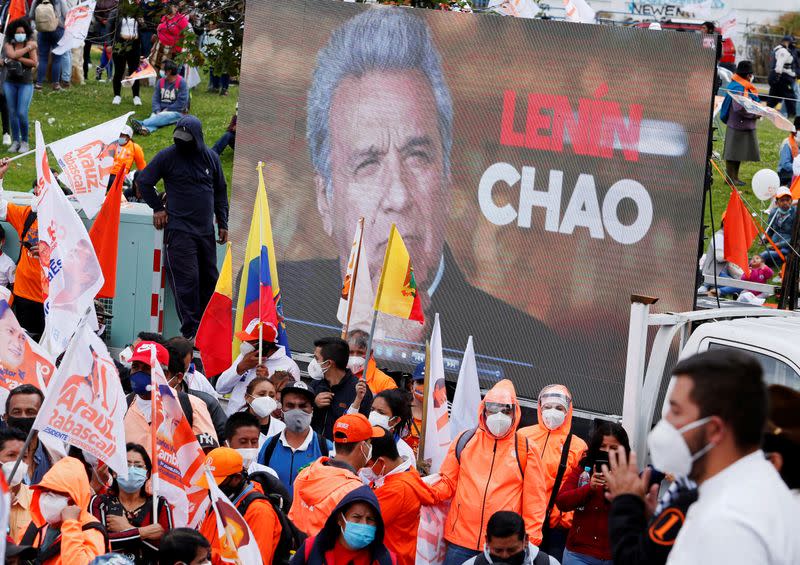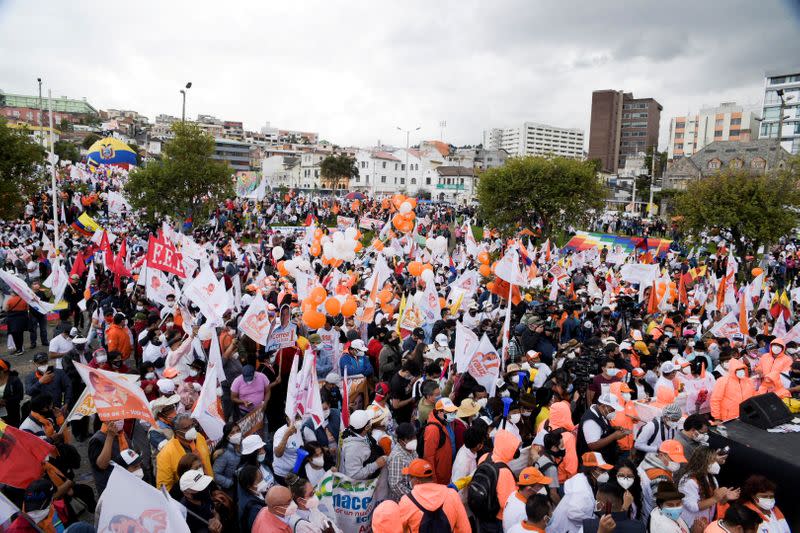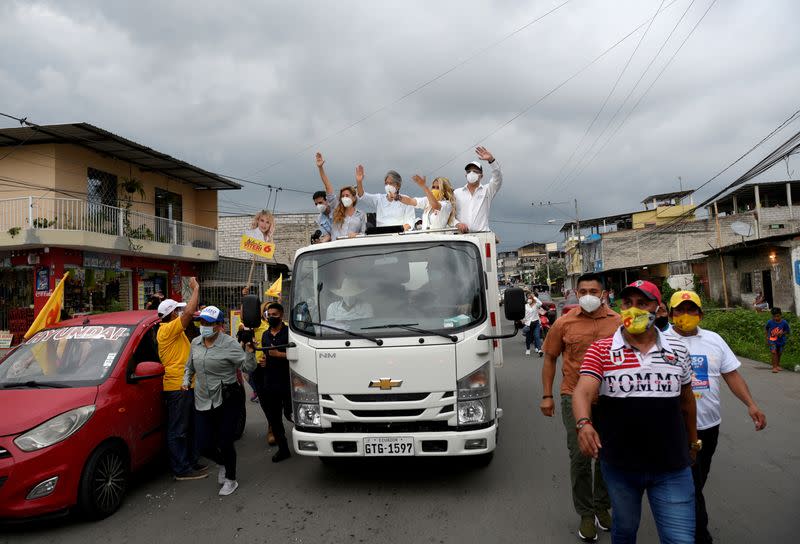Ecuadoreans seek way out of economic crisis in presidential vote
By Alexandra Valencia
QUITO (Reuters) - Ecuadoreans hoping to escape years of economic hardship will elect a new president on Sunday, choosing between candidates who will stick with the current pro-market vision of the last four years or return to the socialist largesse of the prior decade.
Leftist candidate Andres Arauz, backed by the former President Rafael Correa, leads in the polls with promises to roll back austerity measures and give out $1,000 to one million families as soon as he takes office.
He faces two-time presidential candidate Guillermo Lasso, a conservative banker who has promised to create jobs and spur the economy through foreign investment, tax reductions and an increase in oil output in the crude-exporting nation.
"The (average) Ecuadorean is seeing which of the two candidates can get them out of the economic problem they're in," said Francis Romero, director of pollster Click Report. "The (average) Ecuadorean is disillusioned about politics and is only looking for someone to solve economic issues."
The economy has been battered by a brutal coronavirus outbreak since early last year, low oil prices and painful austerity measures needed to balance government accounts after years of heavy spending and excessive borrowing.
President Lenin Moreno, a former Correa ally, is not seeking a second term. He helped shore up government finances with spending cuts and an International Monetary Fund financing deal, but was unable to revive the economy.
Some 13 million Ecuadorians are qualified to vote amid coronavirus prevention measures, which could limit turnout. The elections council has increased the number of voting centers to avoid crowds.
If no candidate gets more than 50% of valid votes or 40% and 10 percentage points more than the runner-up, a runoff vote will be held on April 11.
HARD CHALLENGES
Arauz's biggest challenge if he wins will be finding the funds needed make the promised bonus payments to families.
"If we do not comply, the Ecuadorean people will be tremendously outraged and will lose their faith in government," Arauz said in a televised interview.
Lasso for his part has adapted his rhetoric to accommodate the rising disapproval of austerity measures, offering a social assistance plan for vulnerable families and a minimum wage hike.
But he still faces skepticism about his background even among those who support him.
"I prefer Lasso, although I dislike that he is a banker," said Yolanda Acosta, 56, who lost her job due to the pandemic. "He offers work, which is what we need and not those (bonus payments) that do not solve our economic problems."
Lawyer and indigenous activist Yaku Perez is running on an anti-mining platform focused on the industry's impact on watersheds. He is currently third in the polls, but his support has been rising and Lasso has promised to back him if he makes it to the run-off.
Voters in the city of Cuenca will vote in a referendum on whether to prohibit mining around any of the rivers that go through the city.
The result, which will not be known for several days, may further spook mining companies that have already struggled with community activism and opposition from indigenous activists.
Ecuadoreans will also choose a new legislature, in which Arauz allies are expected to make a strong showing.
(Reporting by Alexandra Valencia; editing by Diane Craft)





